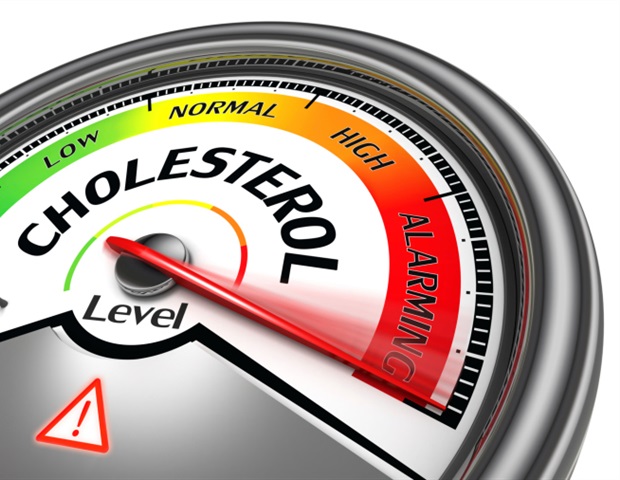Types of Heart Medications | American Heart Association

If you’ve had a heart attack, you will most likely be prescribed some medications that you will take for the rest of your life.
There are many types and combinations of drugs used to treat coronary artery disease (CAD), and your health care team will decide the best treatment plan for your situation.
The following gives you a quick look at many cardiac medications. Your prescription may have a different name from the ones listed on this chart. Brand names commonly available in the U.S. are shown in parentheses after the generic name for each drug.
*Some of the major types of commonly prescribed cardiovascular medications are summarized in this section. For your information and reference, we have included generic names as well as major trade names to help you identify what you may be taking. However, the AHA is not recommending or endorsing any specific products. If your medication isn’t on this list, remember that your health care team and pharmacist are your best sources of information. It’s important to discuss all of the drugs you take with them and understand their desired effects and possible side effects. Never stop taking a medication and never change your dose or frequency without first consulting the prescribing health care professional.
Anticoagulants
(Also known as blood thinners.)
Some commonly prescribed include:
- Apixaban (Eliquis)
- Dabigatran (Pradaxa)
- Edoxaban (Savaysa)
- Heparin (various)
- Rivaroxaban (Xarelto)
- Warfarin (Coumadin)
What the medication does
Decreases the clotting (coagulating) ability of the blood. Sometimes called blood thinners, although they do not actually thin the blood. They do not dissolve existing blood clots and are used to treat certain blood vessel, heart and lung conditions.
Reason for medication
- Helps to prevent blood clots from forming in the blood vessels.
- May prevent the clots from becoming larger and causing more serious problems.
- Often prescribed to prevent first or recurrent stroke or heart attack.
Antiplatelet agents and dual antiplatelet therapy (DAPT)
Some commonly prescribed include:
- Aspirin
- Clopidogrel (Plavix)
- Dipyridamole (Persantine)
- Prasugrel (Effient)
- Ticagrelor (Brilinta)
What the medication does
Keeps blood clots from forming by preventing blood platelets from sticking together.
Reason for medication
- Helps prevent clotting in people who have had a heart attack, unstable angina, ischemic strokes, TIA (transient ischemic attacks) and other forms of cardiovascular disease.
- Can also be used preventively when plaque buildup is evident but there is not yet a major blockage in the artery.
- Certain people will be prescribed aspirin combined with another antiplatelet drug – also known as dual antiplatelet therapy (DAPT).
Dual antiplatelet therapy (DAPT)
Some people who have heart attacks, that have stents placed in their coronary arteries, or undergo coronary artery bypass graft surgery (CABG) are treated with two types of antiplatelet agents at the same time to prevent blood clotting. This is called dual antiplatelet therapy (DAPT).
One antiplatelet agent is aspirin. Almost everyone with coronary artery disease, including those who have had a heart attack, stent, or CABG are treated with aspirin for the rest of their lives. A second type of antiplatelet agent, called a P2Y12 inhibitor, is usually prescribed for months or years in addition to the aspirin therapy.
The type of medication and the duration of your treatment will vary based on your condition and other risk factors. The risks and benefits of DAPT should be discussed with your health care team.
How long you need to take this medicine depends on why it’s being prescribed and your future risk of blood clots and bleeding.
- If you had a heart attack, it is recommended that you be on it for at least a year. If you don’t have a high bleeding risk, taking it longer may lower your risk of future heart attack.
- If you received a “bare metal” stent and you are a high bleeding risk, your health care professional may decide to give you a P2Y12 inhibitor for a shorter period to decrease the chances of bleeding. However, if you are at a lower risk of bleeding, you may have been treated with a drug-eluting stent, and you may be on DAPT for 6-12 months or longer. If you don’t have a high bleeding risk, a longer duration may lower your risk of future heart attack and clotting of the stent. It’s important for you to take the medication as prescribed. Stopping it on your own can lead to increased risk of clots forming inside the stent, particularly in the first few months.
- If you had CABG, you may be treated with a P2Y12 inhibitor for a year after the surgery.
If you have questions about your treatment, talk to your primary health care professional.
Print a patient information sheet on DAPT (PDF).
Angiotensin-converting enzyme (ACE) inhibitors
Some commonly prescribed include:
- Benazepril (Lotensin)
- Captopril (Capoten)
- Enalapril (Vasotec)
- Fosinopril (Monopril)
- Lisinopril (Prinivil, Zestril)
- Moexipril (Univasc)
- Perindopril (Aceon)
- Quinapril (Accupril)
- Ramipril (Altace)
- Trandolapril (Mavik)
What the medication does
Lowers blood pressure by widening blood vessels. This reduces the workload of the heart.
Reason for medication
- Used to treat or improve symptoms of cardiovascular conditions including high blood pressure and heart failure.
- They also provide health benefit to people who have had a heart attack.
Angiotensin II receptor blockers (or inhibitors)
(Also known as ARBs)
Some commonly prescribed include:
- Azilsartan (Edarbi)
- Candesartan (Atacand)
- Eprosartan (Teveten)
- Irbesartan (Avapro)
- Losartan (Cozaar)
- Olmesartan (Benicar)
- Telmisartan (Micardis)
- Valsartan (Diovan)
What the medication does
Angiotensin II receptor blockers prevent angiotensin II from having any effect on the heart and blood vessels. This keeps blood pressure from rising.
Reason for medication
- Used to treat or improve symptoms of cardiovascular conditions including high blood pressure and heart failure.
Angiotensin receptor-neprilysin inhibitors (ARNIs)
ARNIs are a drug combination of a neprilysin inhibitor and an ARB.
Commonly prescribed include:
- Sacubitril/valsartan (Entresto)
What the medication does
ARNIs improve artery opening and blood flow, reduce sodium (salt) retention, and decrease strain on the heart.
Reason for medication
- For the treatment of heart failure
Beta blockers
(Also known as Beta-adrenergic blocking agents)
Some commonly prescribed include:
- Acebutolol (Sectral)
- Atenolol (Tenormin)
- Betaxolol (Kerlone)
- Bisoprolol/hydrochlorothiazide (Ziac)
- Bisoprolol (Zebeta)
- Metoprolol (Lopressor, Toprol XL)
- Nadolol (Corgard)
- Propranolol (Inderal)
- Sotalol (Betapace)
What the medication does
Slows the heart rate and force of contraction, which lowers blood pressure and makes the heart beat more slowly and with less force.
Reason for medication
- Used to treat some types of heart attacks, high blood pressure, chest pain (angina) caused by reduced blood supply to the heart muscle and some arrhythmias (abnormal heart rhythms).
- Used to help prevent future heart attacks in people who have had a heart attack.
Combined alpha and beta-blockers
Combined alpha and beta-blockers are used to treat high blood pressure and heart failure.
Some commonly prescribed include:
- Carvedilol (Coreg, Coreg CR)
- Labetalol hydrochloride (Normodyne, Trandate)
A noted possible side effect of combined alpha and beta-blockers:
- May cause a drop in blood pressure when you stand up.
Calcium channel blockers
(Also known as calcium antagonists or calcium blockers)
Some commonly prescribed include:
- Amlodipine (Norvasc)
- Diltiazem (Cardizem, Tiazac)
- Felodipine (Plendil)
- Nifedipine (Adalat, Procardia)
- Nimodipine (Nimotop)
- Nisoldipine (Sular)
- Verapamil (Calan, Verelan)
What the medication does
Interrupts the movement of calcium into the cells of the heart and blood vessels. May decrease the heart’s pumping strength and relax blood vessels.
Reason for medication
- Used to treat high blood pressure, chest pain (angina) caused by reduced blood supply to the heart muscle and some arrhythmias (abnormal heart rhythms).
Cholesterol-lowering medications
Some commonly prescribed include:
- Statins: Atorvastatin (Lipitor), Fluvastatin (Lescol), Lovastatin (Mevacor), Pitavastatin (Livalo), Pravastatin (Pravachol), Rosuvastatin (Crestor), Simvastatin (Zocor)
- Nicotinic acids: Niacin
- Cholesterol absorption inhibitor: Ezetimibe (Zetia)
- Combination statin and cholesterol absorption inhibitors: Ezetimibe/Simvastatin (Vytorin)
What the medication does
Various medications can lower blood cholesterol levels, but drugs other than statins are usually only used for patients in whom statins are not effective or who have serious side effects from statin therapy. They work in the body in different ways. Some affect the liver, some work in the intestines and some interrupt the formation of cholesterol from circulating in the blood. Watch an animation of how statins work.
Reason for medication
Used to lower LDL (“bad”) cholesterol.
*Some cholesterol-lowering medications may interact with grapefruit, grapefruit juice, pomegranate and pomegranate juice. Please talk to your health care professional about any potential risks.
Digitalis preparations
Commonly prescribed include:
What the medication does
Increases the force of the heart’s beat and slows a fast heart rate. Can be beneficial in treating heart failure and irregular heartbeats.
Reason for medication
- Used to relieve heart failure symptoms, especially when the patient isn’t responding to other standard treatments including ACE inhibitors, ARBs and diuretics.
- Also slows certain types of irregular heartbeat (arrhythmias), particularly atrial fibrillation.
Diuretics
(Also known as water pills)
Some commonly prescribed include:
- Acetazolamide (Diamox)
- Amiloride (Midamor)
- Bumetanide (Bumex)
- Chlorothiazide (Diuril)
- Chlorthalidone (Hygroton)
- Furosemide (Lasix)
- Hydro-chlorothiazide (Esidrix, Hydrodiuril)
- Indapamide (Lozol)
- Metalozone (Zaroxolyn)
- Spironolactone (Aldactone)
- Torsemide (Demadex)
What the medication does
Causes the body to rid itself of excess fluids and sodium through urination. Helps to reduce the heart’s workload. Also decreases the buildup of fluid in the lungs and other parts of the body, such as the ankles and legs. Different diuretics remove fluid at varied rates and through different methods.
Reason for medication
- Used to help lower blood pressure and help reduce swelling (edema) from excess buildup of fluid in the body.
Vasodilators
Some commonly prescribed include:
- Isosorbide dinitrate (Isordil)
- Isosorbide mononitrate (Imdur)
- Hydralazine (Apresoline)
- Nitroglycerin (Nitro Bid, Nitro Stat)
- Minoxidil
What the medication does
Widens (dilates) the blood vessels so the blood flows more easily and the heart doesn’t have to work as hard and decreases blood pressure.
A category of vasodilators called nitrates increases the supply of blood and oxygen to the heart while reducing its workload which can ease chest pain (angina). Nitroglycerin is available as a pill to be swallowed or absorbed under the tongue (sublingual), a spray, and as a topical application (cream).
Reason for medication
- Used to ease chest pain (angina)
- Used to treat essential high blood pressure
- Treats high blood pressure caused by pregnancy
link








